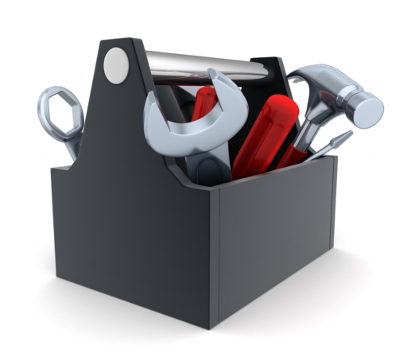How to Overcome 8 Sources of Financial Problems & Difficulties
 Protect Yourself from a Financial Crisis or Emergency
Protect Yourself from a Financial Crisis or Emergency
Financial problems and challenges happen to everyone at some point, and the stress and worry can get to you. However, realizing that there is almost always a way out can help you not feel so depressed. You may be able to find the way out yourself, or you may need someone else's perspective to help you find a solution. Below we’ll show you how to overcome financial problems and difficulties and ease your stress. But, one size does not fit all. If your situation is beyond the general help provided here, we’ll also let you know who you can go to for more in-depth help.
1. Identify the Underlying Problem That's Causing the Difficulties
The first step to overcoming financial problems is to identify the underlying issue that’s causing the financial difficulties. Financial problems are usually a symptom of a bigger issue. To come up with solutions that work in the long run, take the time to identify the real source of your financial troubles. Here are some common things to think about:
| Source of Financial Problem | Reason Why Difficulties Often Occur | Solution |
| Unemployment or lower than usual income | Using credit for living expenses on reduced income | Re-evaluate your lifestyle, create a budget and follow it. If employed, see if you can get a 2nd job or more overtime |
| Unexpected illness or accident | Increased medical expenses and low/no income | Simplify your lifestyle. Get all the help you can. Make sure you're getting everything you're entitled to: check with your province & reach out to agencies that can help |
| Moving out on your own | Used to a high standard of living that took your parents decades to achieve | Adjust expectations and learn to live on what you earn rather than what you're used to; use cash, not credit |
| First baby is born | Parents didn't budget for the increased expenses and the drop in income during maternity leave | Adjust your budget and your lifestyle to fit the reduced income and increased expenses |
| Divorce | Got the house but can't afford the ongoing expenses on only one income; left over bills | Sell the house and downsize to something you can afford or generate revenue with the house |
| Retirement | You're now asset rich and cash poor. You can no longer afford to live life plus pay the house upkeep on your reduced income | Sell the house, move into something you can afford, invest extra proceeds from the sale, and enjoy life more |
| Emotional attachment to something | You are not willing to part with something you can no longer afford: could be a home, business, vehicle or toy | Set emotions aside and look at the situation from a financial perspective; picture life 5 years from now & what bills will be then |
| An addiction | Spending more than you earn trying to satisfy the addiction | Get professional help and counselling to deal with the addiction. If you don't, you'll never overcome your financial problems |
Your problem may not be listed above or it may be more complex. However, the concept of identifying a specific problem is important because it is more likely to result in a lasting solution. Just like with a leaky faucet; placing a bucket below is temporary. Fix the tap and the leak will stop. Focus on solving the problem that’s causing your money troubles, rather than dwelling on your stress.
2. Create a Budget - Spend Money in a Way That Helps Solve the Problem
One of the best weapons for combating financial problems is a budget. A budget is a monthly spending plan for your money. Creating a budget is like turning the lights on to find your way around a dark room. You no longer need to wander in the dark; banging your shins, tripping over the furniture, and stepping on the dog. Instead, with the lights on, you can see what’s going on and prevent problems before they happen. A budget works much the same way; it guides your spending decisions so that you're spending money on what's really important to you. In this case, you'll spend your money in a way that helps solve your financial problem.
Click here to learn more about creating a budget, or try out our budget calculator that guides you through the budgeting process, points out common problems, and offers suggestions to improve your budget.
Track Your Expenses to Build a Budget That Works
As you create your budget, it’s important that your expenses aren’t just guesses – they need to reflect reality. You may want to track your expenses for at least a couple of weeks (a month is best) to objectively see where you are spending your money and how much you’re spending. Although you may think you know where your money is going, when most people tally up all their purchases for a month, they are usually quite surprised to notice that their spending doesn’t always match up with what they thought their priorities were.
3. Determine Financial Priorities to Guide Your Spending Choices

4. Identify Small Steps You Can Take to Address the Problem & Achieve Your Goals
Look here to get ideas of where find some extra money each month, get the card paid off, and then permanently have $50 extra to use in your budget every month. However, if by the time you reach this goal you’ve learned to get by without this $50, then use it to accelerate the payment of another debt each month, and get all of your debts paid off more quickly.
Look for Things You Can Do, Even Temporarily, to Improve Your Situation
Here are more ideas or steps you can consider taking to improve your financial situation and alleviate difficulties:
- As you look through your budget, ask yourself: Do I want this or do I need it? Will spending this money get me closer to my financial goals or further away? Can I live without it? Learn more about separating needs from wants.
- Do you use credit cards for impulse purchases? This can contribute to a cycle of ongoing financial difficulty and add as much as 50% to everything you purchase. Learn how to reduce or change impulsive spending habits.
- Ask yourself if you can downsize anything in your budget or switch to a less expensive option. If vehicle costs are straining your budget, can you downsize your vehicle, get rid of one vehicle (the average person spends over $9,000 per year to own and operate a vehicle), take transit (80% cheaper than owning a vehicle), or car pool? If your rent, mortgage, or home upkeep is bleeding you dry, can you downsize to something more affordable, rent out your basement, rent a room in your house, rent out the storage space in your garage, or can you take in a student for some extra income?
- If debt is causing you financial problems, here are a lot of ways to reduce your debt or here are a dozen of the most effective ways to get out of debt.
- Do you have any assets or toys you can sell to pay off debt?

- Can you take on a side job or create another source of income with something you know how to do well?
- Look outside the box, ask yourself tough questions, invite a trusted friend to have a look at your budget and make suggestions, or sit down with a Credit Counsellor and get their suggestions.
- Research viable options that will move you towards your goals. A consolidation loan, speaking with a Credit Counsellor, a Debt Management Program, or some other option may be a possibility.
While doing any of these can be an unappealing thought, don’t just dismiss them because they’ll move you out of your comfort zone. Keep thinking about them and give them some consideration. Come back to these ideas from time to time to see if you can come up with a new angle on decreasing your expenses or increasing your income that might just work for you. Remember, you’re trying to get through a tough a time; you don’t need to do this forever, just to get back on track. If you’re really struggling, an experienced Credit Counsellor can be a great, free source of suggestions.
5. Develop Your Plan to Overcome Financial Problems for Good
Once you’ve come up with some ideas for how to begin tackling your financial problems and difficulties, you can put together a realistic plan to accomplish your goals. Some goals will have a timeline of a few months; others will need a longer timeline, like 24 - 36 months. Write your goals down, but also write down where you’re at now in relation to each goal. For example, if one of your goals is to pay off a $4,000 debt, make sure to write down the current debt balance and your future goal of paying this down to $0. You’ll want to include in your plan the amount of money you’re going to pay on this debt every month so that you can pay it off within your desired time frame. For more help on setting goals, have a look at this. Here are also some tips on setting financial goals with your spouse.
If you’re really feeling overwhelmed and stressed by your situation, you can also reach out to a non-profit credit counselling agency for help. They have professionally trained Credit & Debt Counsellors who can review your situation with you, help you put together a realistic budget, and help you come up with a plan to solve your current challenges and get your finances back on track. Their help is usually free and is always confidential.
6. Review How Things are Going
The last step takes place once you are a few months into working on your plan. Every once-in-a-while, take a few minutes to review how things are going. Is your plan working? Are you making progress toward your goals? If not, you’ll need to take a closer look to figure out why not and adjust your plan. Your plan needs to be realistic, or it’s not going to work. It should also contain some things you weren’t doing before you put the plan in place.
If you keep doing what you were doing before, then you’ll continue to get the same result as before – problems. You’ve got to do something different to get a different outcome.
As you follow your plan and see improvements in your situation, be open to the possibility of fine-tuning the plan. Once you start making some progress, you may find you’re doing better than you thought, or you may come up with some new insights. Improving your plan so that you accomplish your goals more quickly is good as long as your budget can afford the changes and everyone who relies on your budget is okay with the more aggressive approach.
Preventing Future Financial Challenges
Unexpected financial challenges are bound to arise in the future - in fact, research shows that 6 in 10 Canadians will experience major life events that will challenge their prior financial plans. The key to tackling these challenges is to be flexible. Review your budget occasionally and make necessary changes. Build up savings so that you can handle unanticipated expenses without going into debt and putting yourself in a difficult situation.
Overcoming financial problems and difficulties isn’t easy, but by setting some clear priorities for yourself, identifying ways to achieve these goals, and persevering with your plan, you can overcome the challenges and at the same time, put an end to the financial stress.
Related:
- Online Workshop: How to Resolve Relationship & Marriage Money Problems & Issues
- How to Protect Yourself from a Financial Emergency
- Does Being Organized with Your Money Really Matter?

Comments
vivienne replied on Permalink
how to overcome 8 types of financial problems
sagar pal replied on Permalink
Help need
MyMoneyCoach Team replied on Permalink
Where to get help
Bandela Pratap replied on Permalink
Financial problems
MyMoneyCoach Team replied on Permalink
Finding help
Pushkaraj Sawant replied on Permalink
More More Money Problem
MyMoneyCoach Team replied on Permalink
You should speak with a credit counsellor
Diganta Gohain replied on Permalink
Drastic financial problems
MyMoneyCoach Team replied on Permalink
Two places to look for help
Lanie Won replied on Permalink
Good Job!
Nina replied on Permalink
68 years old with little money for the golden years
MyMoneyCoach Team replied on Permalink
You should speak with a financial planner